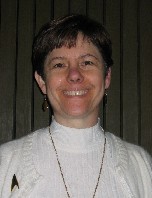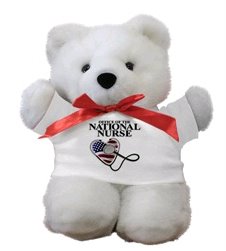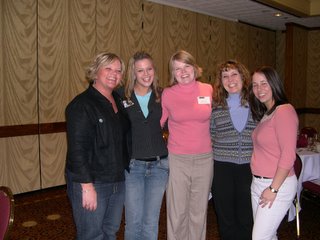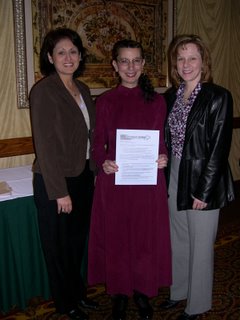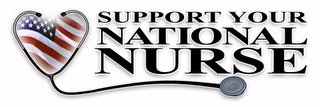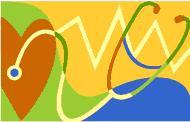
The National Nurse Team would like to use this post to respond to the op/ed written by the American Nurses Association that was published in the Nevada RNformation Feb-Apr 2006. We want to thank the American Nurses Association for their committment to their role in advocating for nurses, and we support their continued efforts.
Indeed there are many difficult issues facing nurses and we value all the associations that are working hard, and achieving gradual but true success, to improve the working conditions, ratios, and empowerment issues facing nurses.
We were happy to read the recent statement by the ANA about the National Nurse proposal because it underscores the need for more information sharing and clarity. The National Nurse proposal focuses on bringing education and accurate health information to the public; nurses doing what they do daily, at the bedside or for their communities, for the entire country.
It is our hope that you will read the proposal and after it in it's entirety, it will be clear how this is not an effort purely for nurses but an effort by nurses for all Americans.
CREATE AN OFFICE OF THE NATIONAL NURSE TO ADVOCATE FOR, EDUCATE, AND EMPOWER AMERICAN HEALTH CARE CONSUMERS
Request: Create an Office of the National Nurse to focus on providing all Americans with preventive health care resources.
The office is necessary to acknowledge the critical role nurses play in hands-on patient care and education. The Office of the National Nurse would provide Americans with the tools to prevent disease and effectively manage chronic illness thereby reducing utilization of health care resources. The National Nurse will oversee state coordinators who will assemble nurse teams to provide screening, education and referral services in their communities.
Nurses treat people in their response to wellness, disease or injury and do this through collaboration with physicians and other health care service providers. The Office of the National Nurse will function similarly in a complementary role with the Office of the Surgeon General and other current agencies providing health care services.
Background: There are 44 million uninsured Americans and millions more are underinsured, leaving large gaps in people's access to primary and preventive care services. Americans who are insured may have limited understanding of the importance of primary or preventive health care services. Nurses know the importance of outreach and integrating patient and family education into their care for every patient. Studies demonstrate that when nurses provide early intervention, educate and work closely with patients, patients require fewer hospital and emergency care visits. (Palmer, Appleton, Rodrigues, 2003; Cherry, Moffatt, Rodriguez & Dryden, 2002) Nurses overseeing and promoting preventative care will decrease the need for hospitalizations, thereby reducing utilization of Medicare and Medicaid dollars. (Collins & Wadhwa, 2005) Ultimately, fewer nurses would be needed to provide "sick care" at the hospital or nursing home bedside, thus lessening the impact of the current nursing shortage.
Community based nurse led health services focusing on identification and early intervention have been shown to prevent unnecessary admissions to hospitals, reduce length of stay of necessary hospital admissions, and improve patients' ability to function while enjoying a higher quality of life. (Young, 2005)
There are 2.7 million nurses who work on the front lines in the United States health care system. Even though they are one of the largest groups of health care service providers in the nation, nurses hold too few positions of influence to have a national large-scale impact on the nation's health. The Office of the National Nurse integrates Nursing's Agenda for the Future (2002) as proposed by nineteen national nursing associations and organizations that call for an improvement of the image and value of the nursing profession. The activities of the Office, as well as the National Nurse, will fulfill this objective by portraying nursing as a nationally respected and valued career.
Also in Nursing's Agenda for the Future (2002)one of the objectives calls for achieving nursing's desired future state by creating "a process that provides for ongoing communication, collaboration, support and monitoring of the overall plan activities within the nursing community and among other health professions, the health care industry, and health care consumers."(p.9)
Plan: Create an Office of the National Nurse to promote and coordinate opportunities for the nation's registered nurses and licensed practical nurses to collaborate in community-based Nurse Teams. Nurse Teams will utilize the traditional nursing approach that focuses on assessing the individual's overall physical and mental state of health and working with the patient to achieve a positive outcome in accessing health services.
The Nurse Teams will be responsible for the implementation of four educational programs per year which have been identified by the National Nurse through collaboration with the Surgeon General's office and other members of the health professions, including but not limited to members of the nursing and medical professions, pharmacists, nutritionists, health educators, the Center for Medicare and Medicaid Services, pharmaceutical companies and hospital associations.
These programs will occur nationwide simultaneously to raise awareness and increase participation. For instance, if obesity/diabetes screening is the top national health priority, then the National Nurse would direct the State Coordinators who would direct their Nursing Teams in presenting the educational program in churches, supermarkets, schools, senior centers, libraries and other accessible locations in their communities. Any licensed nurse in the country would be allowed to receive training to participate and these educational programs will be designed to reach every American instead of a targeted population.
State Nurse Teams will include nurses prepared at all educational levels and will represent diverse populations. Programs will foremost focus on keeping Americans healthy by providing education about how identify their individual wellness needs, understand how to access available health services, and how to navigate the myriad of choices to better care for themselves.
Programs will improve quality of care by helping identify the special needs of communities including but not limited to geriatric and culturally diverse populations. As members of their community, nurses are better able to identify and target the diverse needs of the patients they serve.
The Office of the National Nurse, as a center, will share and disseminate information and collect data from the Nursing Teams to assist government agencies such as the CDC with their ongoing research. The Nurse Teams will focus on educating Americans using "best practices" to improve their health while reducing costs.
Nurses identified as "experts" from the National Nurse Teams will present one health education topic to the American people each week. The expert is defined as a nurse who has the educational background and practice experience to represent the health topic information to be delivered. These weekly educational pieces will be available for broadcast and on the Internet in different languages to reach America's diverse population. The goal is to create the most massive community outreach ever conducted by nurses.
Role:
The National Nurse will serve as spokesperson, publicizing the distinct role of nursing, and encouraging nurses to become involved in grassroots activities and educating the American public about the services provided by the Office. Educating the public about nursing's pivotal role in health care will be basic to involving nurses in health care policy formulation and in key business decisions that affect nursing's future." (Nursing's Agenda for the Future, 2002, p 10)
The National Nurse will be responsible for collaborating with members of the nursing community and other health care providers to determine priorities for the National Nurse Teams' community-based programs.
The National Nurse will identify state coordinators for each of the states that will be responsible for ensuring the volunteer activity is disseminated to the grassroots level.
Through the Office of the National Nurse, nurses from around the country will sign up indicating the state they are licensed from and their willingness to serve on a Nurse Team in their community.
The National Nurse will choose an expert nurse to address the nation via a public service announcement on pertinent health care topics.
The National Nurse will actively recruit qualified individuals into the profession and encourage nurses to become nurse educators through media campaigns and public appearances.
The National Nurse will work with other interested persons and departments to promote policy that would improve the nation's health.
The Office of the National Nurse will collect data to demonstrate the success of the National Nurse Team activities.
